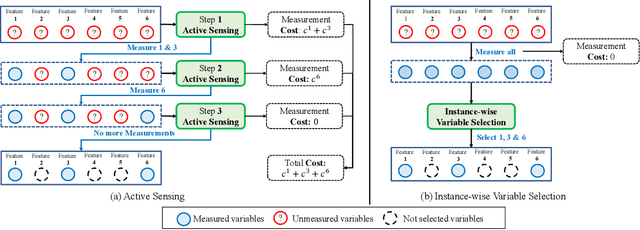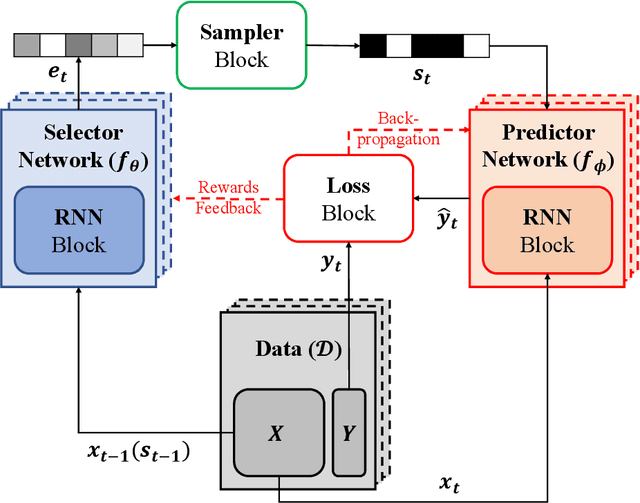ASAC: Active Sensing using Actor-Critic models
Paper and Code
Jun 16, 2019



Deciding what and when to observe is critical when making observations is costly. In a medical setting where observations can be made sequentially, making these observations (or not) should be an active choice. We refer to this as the active sensing problem. In this paper, we propose a novel deep learning framework, which we call ASAC (Active Sensing using Actor-Critic models) to address this problem. ASAC consists of two networks: a selector network and a predictor network. The selector network uses previously selected observations to determine what should be observed in the future. The predictor network uses the observations selected by the selector network to predict a label, providing feedback to the selector network (well-selected variables should be predictive of the label). The goal of the selector network is then to select variables that balance the cost of observing the selected variables with their predictive power; we wish to preserve the conditional label distribution. During training, we use the actor-critic models to allow the loss of the selector to be "back-propagated" through the sampling process. The selector network "acts" by selecting future observations to make. The predictor network acts as a "critic" by feeding predictive errors for the selected variables back to the selector network. In our experiments, we show that ASAC significantly outperforms state-of-the-arts in two real-world medical datasets.
 Add to Chrome
Add to Chrome Add to Firefox
Add to Firefox Add to Edge
Add to Edge